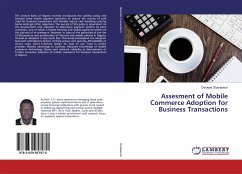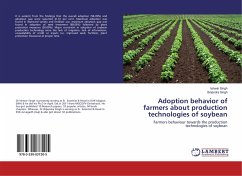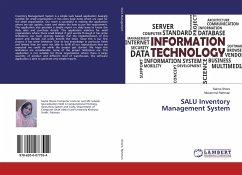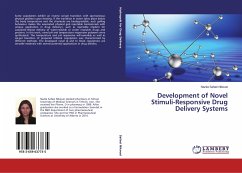
Assesment of Mobile Commerce Adoption for Business Transactions
Versandkostenfrei!
Versandfertig in 6-10 Tagen
41,99 €
inkl. MwSt.

PAYBACK Punkte
21 °P sammeln!
The Central Bank of Nigeria recently introduced the cashless policy and licensed some mobile payment operators to reduce the volume of cash used for business transactions and thereby reduce cash handling costs by banks amongst other objectives. The success of this policy is dependent on the development and adoption of alternative payment options by bank customers, one of which is mobile banking and mobile payments which are the sub-sets of m-commerce. However, in spite of the potentials of the use of Mcommerce and proliferation of internet and mobile phones in Nigeria, its level of adoption is...
The Central Bank of Nigeria recently introduced the cashless policy and licensed some mobile payment operators to reduce the volume of cash used for business transactions and thereby reduce cash handling costs by banks amongst other objectives. The success of this policy is dependent on the development and adoption of alternative payment options by bank customers, one of which is mobile banking and mobile payments which are the sub-sets of m-commerce. However, in spite of the potentials of the use of Mcommerce and proliferation of internet and mobile phones in Nigeria, its level of adoption is very much low. This study investigated the adoption level and contributory factors of Data privacy and security, Affordability of service costs, Good Interface design for ease of use, Trust in service provider, Relative advantage to business, Adopters Knowledge of mobile commerce technology, Device and network reliability as determinants of further consumer adoption of mobile commerce for business transactions in Nigeria.












